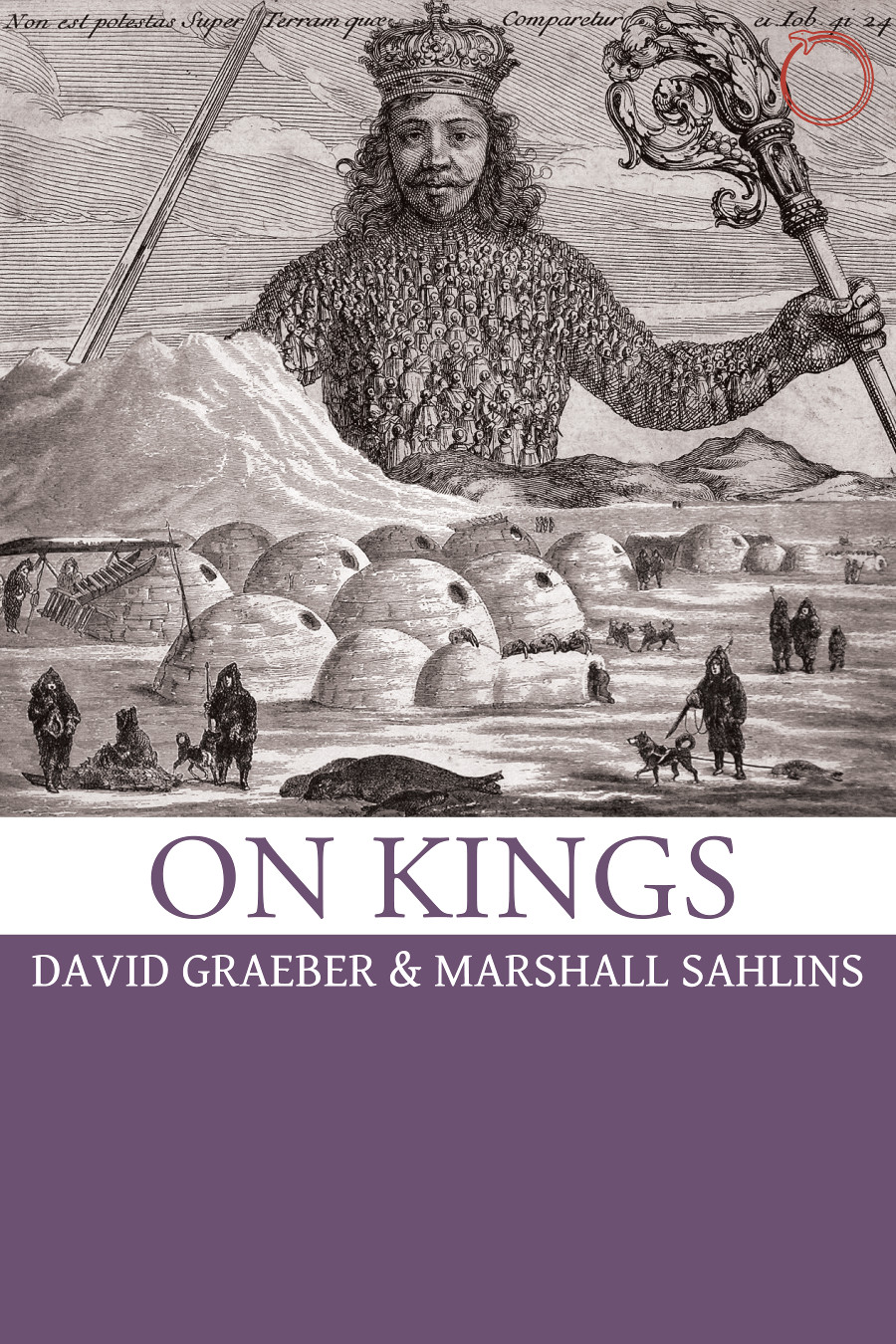David Graeber, Marshall Sahlins: On Kings (2017)
Filed under book | Tags: · anthropology, authority, kinship, labour, myth, politics, production, ritual, royalty, sovereignty, state, violence

“In anthropology as much as in popular imagination, kings are figures of fascination and intrigue, heroes or tyrants in ways presidents and prime ministers can never be. This collection of essays by two of the world’s most distinguished anthropologists—David Graeber and Marshall Sahlins—explores what kingship actually is, historically and anthropologically. As they show, kings are symbols for more than just sovereignty: indeed, the study of kingship offers a unique window into fundamental dilemmas concerning the very nature of power, meaning, and the human condition.
Reflecting on issues such as temporality, alterity, and utopia—not to mention the divine, the strange, the numinous, and the bestial—Graeber and Sahlins explore the role of kings as they have existed around the world, from the BaKongo to the Aztec to the Shilluk and beyond. Richly delivered with the wit and sharp analysis characteristic of Graeber and Sahlins, this book opens up new avenues for the anthropological study of this fascinating and ubiquitous political figure.”
Publisher HAU Books, Chicago, 2017
Creative Commons BY License
ISBN 0986132500, 9780986132506
xv+536 pages
Alain Joxe: Empire of Disorder (2002)
Filed under book | Tags: · balkans, chechnya, democracy, economy, empire, fascism, globalisation, kosovo, military, neoliberalism, philosophy, politics, serbia, sovereignty, strategy, violence, war, yugoslavia

“Globalization is quickly turning the world into a chaos, leading to an increasing disparity between rich and poor, the rise of an international, rootless ‘noble class,’ and an escalating number of endless cruel little wars. Yet the United States refuses to conquer the world and assume the protective imperial role for the societies it subjugates. Instead, it operates on a case-by-case basis, regulating disorder, repressing the symptoms of despair instead of attacking its cause. For the first time perhaps, humanity has embarked on an ocean of disorder with no final order in sight.”
Translated by Ames Hodges
Edited by Sylvère Lotringer
Publisher Semiotext(e), 2002
Active Agents series
ISBN 1584350164, 9781584350163
221 pages
PDF (updated on 2012-7-26)
Comment (0)Bruno Gullì: Earthly Plenitudes. A Study on Sovereignty and Labor (2010)
Filed under book | Tags: · capitalism, economics, everyday, labour, life, marxism, ontology, philosophy, politics, sovereignty

A fierce critique of productivity and sovereignty in the world of labor and everyday life, Bruno Gullì’s Earthly Plenitudes asks: can labor exist without sovereignty and without capitalism? He introduces the concept of dignity of individuation to prompt a rethinking of categories of political ontology. Dignity of individuation stresses the notion that the dignity of each and any individual being lies in its being individuated as such; dignity is the irreducible and most essential character of any being. Singularity is a more universal quality.
Gullì first reviews approaches to sovereignty by philosophers as varied as Gottfried Leibniz and Georges Bataille, and then looks at concrete examples where the alliance of sovereignty and capital cracks under the potency of living labor. He examines contingent academic labor as an example of the super-exploitation of labor, which has become a global phenomenon, and as such, a clear threat to the sovereign logic of capital. Gullì also looks at disability to assert that a new measure of humanity can only be found outside the schemes of sovereignty, productivity, efficiency, and independence, through care and caring for others, in solidarity and interdependence.
Publisher: Temple University Press, Philadelphia, 2010
ISBN 978-1-59213-979-8
200 pages

